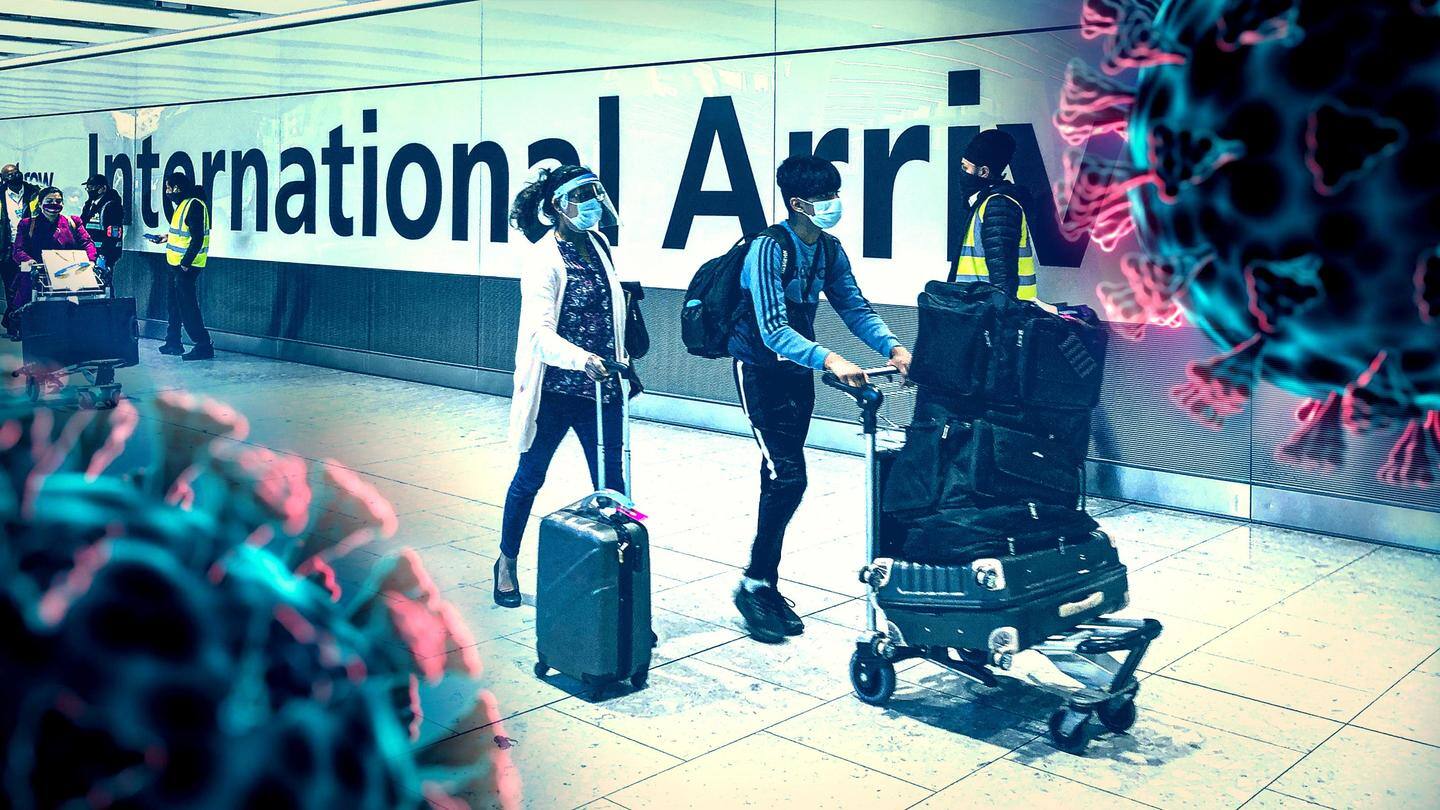
Centre issues new guidelines for international arrivals; check details here
What's the story
The Union Health Ministry on Thursday revised COVID-19-related guidelines for international arrivals effective from February 14. The central government has removed the demarcation of 'at-risk' countries and others in its revised guidelines. Earlier, passengers from 'at-risk' nations were subjected to restrictions upon arrival in India. The new guidelines also recommend 14 days of self-monitoring post-arrival, withdrawing the seven-day home quarantine currently mandated.
Context
Why does this story matter?
The guidelines have been revised as India witnesses a decline in COVID-19 cases. On Thursday, India reported over 67,000 new cases with a daily positivity rate of 4.44%. This was a major improvement since December-end when cases had crossed the one-lakh mark. The new rules will replace those announced in December when strict restrictions were imposed to stop the spread of the Omicron variant.
Guidelines
Traveling to India? Here's what you should know
Under the new guidelines, passengers traveling to India should submit complete and factual information in the self-declaration form on the Air Suvidha Portal, including a travel history of the past 14 days. Passengers will have to upload a negative RT-PCR test report within 72 hours before undertaking the journey. Alternatively, they can also upload a certificate confirming they have received both vaccine doses.
Vaccination certificate
Vaccination certificates of which countries accepted?
India will only accept vaccination certificates of travelers from countries that have an agreement with India on mutual recognition of certificates for vaccination using nationally recognized or World Health Organization (WHO) recognized vaccines. Thus, passengers from only 82 countries will have this alternative option. These include Canada, Hong Kong, the United States, the United Kingdom, Bahrain, Qatar, Australia, New Zealand, and some European nations.
Guidelines
What else do the revised guidelines say?
Passengers from 'at-risk' countries will no longer be required to undergo a mandatory COVID-19 test on arrival. Samples from 2% of the travelers will be collected randomly after de-boarding, but they will not be required to wait for the results and could immediately leave the airport. Furthermore, there will be no need to take a previously mandated test on the eighth day after arrival.
Information
Children under 5 years exempted from testing
The guidelines notably exempt children under five years of age from pre-boarding and post-arrival COVID-19 testing. However, if found symptomatic for COVID-19 on arrival or during the self-monitoring period, they shall undergo testing and treatment as per protocol, the guidelines added.
Process
What will be the process after de-boarding?
After de-boarding, all passengers have to undergo thermal scanning at the airport. They will also have to present the self-declaration form to the health officials. Guidelines said passengers who are found to be asymptomatic during screening shall be immediately isolated and taken to a medical facility. If they test positive, their contacts have to be identified and managed as per protocol, the guidelines added.
Information
What if passengers develop symptoms during self-monitoring period?
The guidelines recommend that if a passenger develops signs and symptoms during the 14 days of self-health monitoring, they should immediately isolate themselves. They should also report their health status to the nearest health facility.
Airlines
Guidelines for airlines
Airlines should only allow passengers who fill out the self-declaration form and present a negative RT-PCR report or vaccination certificate. Only asymptomatic passengers will be allowed inside flights at the time of boarding. Airlines will have to provide the dos and don'ts to travelers along with their tickets. The in-flight crew has to ensure that COVID-19 appropriate behavior is followed at all times.